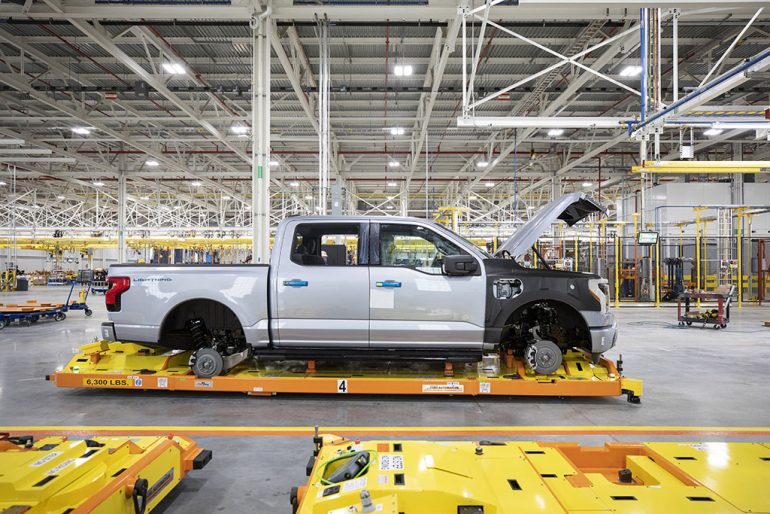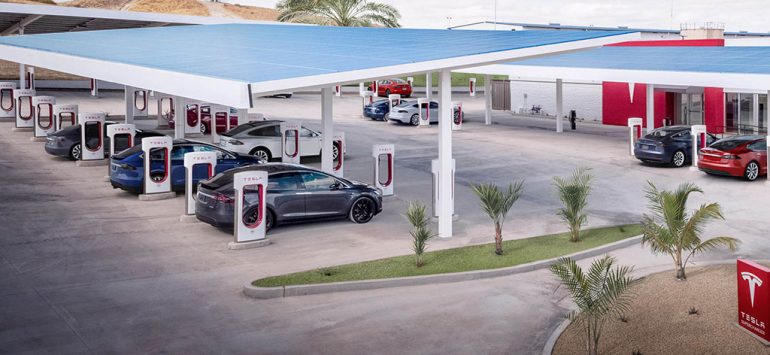
The transition to electric vehicles (EVs) in the United States has hit a series of roadblocks, causing industry leaders to reconsider the speed at which this transformation is occurring.
EV sales growth has stagnated, and some major automakers have made significant adjustments to their plans. General Motors postponed the production of EV pickups, Honda canceled an agreement to produce affordable EVs with GM, and Ford delayed $12 billion in EV spending, reducing Mustang Mach-E production and deferring a battery plant project. Tesla, an EV-only manufacturer, experienced a slowdown in revenue growth in the third quarter. Additionally, Mercedes-Benz dealers are facing challenges with slow-selling EVs, resulting in extended periods for vehicles to find buyers, which contrasts with the faster turnover of traditional internal combustion engine vehicles.
According to S&P Global Mobility, in September, battery-electric vehicles represented 7.7 percent of U.S. light-vehicle sales, slightly down from the previous month. Range anxiety and the cost of EVs are major factors contributing to this slower adoption. Consumers appear hesitant to pay a premium for EVs with ranges of 300 miles or less, which may be discouraging potential buyers.

While the current situation presents hurdles and inventory buildups, experts suggest that these fluctuations will not dictate long-term trends. Analysts anticipate a gradual, rising tide in the EV market rather than an immediate tidal wave. Stephanie Valdez-Streaty, the director of industry insights at Cox Automotive, likens the challenges faced by automakers to the historical ebbs and flows of gasoline vehicle production. Adjustments in production will be necessary to align with consumer demand during this significant transition.
Cox Automotive forecasts that automakers in the U.S. will sell over 1 million EVs this year, marking rapid growth in the market. The transition to EVs will continue, but the exponential growth observed in recent years is expected to level off in the coming year. Early adopters have already purchased EVs, and the challenge now lies in attracting more practical-minded buyers. Higher transaction prices, with the average EV costing more than traditional gasoline vehicles, and the issue of unreliable public charging infrastructure remain significant obstacles to widespread adoption.

Despite the current setbacks, automakers are unlikely to alter their ultimate electrification goals. In the future, there may be a market for more affordable EVs, as envisioned by GM and Honda, which had plans to launch EVs priced below $30,000 in 2027. If automakers give up now, they risk falling behind when the market stabilizes.
Overall, the transition to EVs is a complex process influenced by various factors, including pricing, federal incentives, and consumer preferences. While there are challenges and uncertainties in the short term, experts emphasize that the shift towards electric vehicles will continue, though it may not be a smooth ride.
Source: AutoNews (subscription required)

Mike Floyd is a finance executive by trade and a car enthusiast at heart. As a CFO with a keen eye for detail and strategy, Mike brings his analytical mindset to the automotive world, uncovering fresh insights and unique perspectives that go beyond the surface. His passion for cars—especially his favorite, the Porsche 911, fuels his contributions to Automotive Addicts, where he blends a love for performance and design with his professional precision. Whether he’s breaking down industry trends or spotlighting emerging innovations, Mike helps keep the site both sharp and forward-thinking.